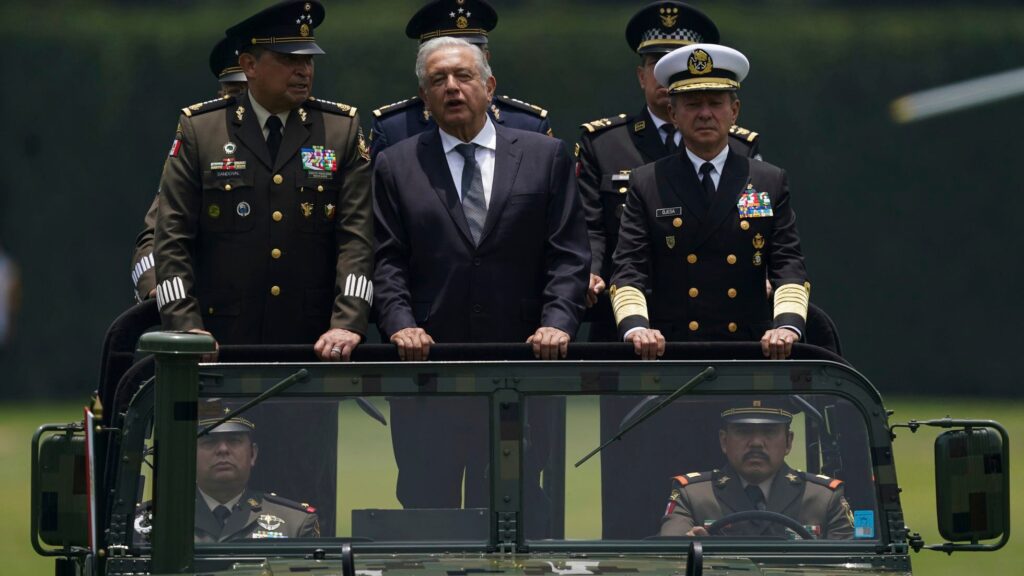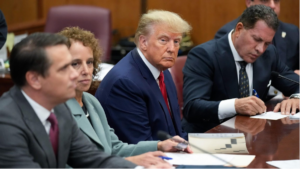
The war on drugs in México has been a campaign marred by setbacks, failures, and tragedy. As a response to the growing violence from organized crime in the country, president elect Felipe Calderón began vast militarization of the country upon entering office in 2006. Instead of fostering peace as intended, the country saw a more than two-fold rise in homicides over the six years of Calderón’s regime, even as the military grew more involved in the country’s security at all levels. Calderón’s successor, Enrique Nieto, continued much of Calderón’s military legacy and, much like his predecessor, failed to sustainably bring down the homicide rate despite a temporary dip from 2012-2014. From the beginning of his presidency in 2012 to the end in 2018, Nieto failed to bring the people of México a safer country.
In 2018, tired of the lack of change, the people elected the MORENA party’s candidate, populist President Andrés Manuel López Obrador (or AMLO for short), who promised to “purify public life in México.” Though he remains popular among the people with an approval rating of above sixty percent, AMLO has headed a regime rife with controversial policy decisions.
He has failed to deliver on his promise for change, and instead continues one of his predecessor’s most dangerous policies: militarizing the nation.
On Tuesday, February 20, 2024, AMLO announced that the military would take charge of the civilian role in filling in potholes and maintaining highways. This is just one of many examples of a militarization that began five years ago. In 2019, AMLO oversaw the passing of the Decree of Constitutional Reform n. 235, in which the country saw the regularization of increased militarization through increased budgeting and a larger military presence on the streets until 2024 along with the replacement of the civilian led Federal Police with the military led National Guard. Over the past half decade since 2019, the military has also come to control many airports, hotels, trains, Mexico’s customs operations, and even theme parks. This militarization has been costly. From 2019 to 2021 alone, the military budget rose from 270 billion Mexican Pesos all the way to 333 Billion Mexican pesos, reversing a previous four year trend where military spending had been falling incrementally.
Money is not the only cost of this militarization. Mexico’s military has become an overwhelming power in the nation, more so than ever before. Traditional civilian roles, like the management of train lines and constructing banks have been put under complete military oversight.
Along with his tendency to take power away from civilians and put it into the hands of the military, AMLO also has been systemically undermining the fundamental institutions of Mexican democracy. In addition to cutting funding for the National Electoral Institute, the country’s electoral agency, he also continues to undermine the Mexican judiciary by, among other things, trying to unconstitutionally extend pro-AMLO Supreme Court President Arturo Zaldivar’s tenure.
And then there are the scandals. Among many charges corruption over the years, a recent report published by journalist Carlos Loret de Mola claims that one of AMLO’s sons played a role in trying to profit off of AMLO’s rail infrastructure project “Tren Maya” as he was implicated within a contracting network that artificially raised raw material prices for for the construction. His two brothers and other sons have also all been implicated in money-based scandals.
The unprecedented rise in military involvement in traditional civilian responsibilities coupled with his alarming behavior makes AMLO look like a potential threat to democracy in México. Though he and his party remains popular with the people of México, his regime has participated in actions that put bureaucratic and electoral integrity at stake. For the upcoming election in June 2, 2024, he cannot re-run, but his successor fellow MORENA party candidate Claudia Sheinbaum, remains the favorite for the next election by more than 30 percentage points. It seems as though she will continue AMLO’s policy decisions. This summer, México will have a serious decision to make about the future of their country.



